Chapter: Discrete Time Systems and Signal Processing : Discrete Time System Analysis
Inverse Z Transform (IZT)
INVERSE Z TRANSFORM (IZT)
The
signal can be converted from time domain into z domain with the help of z
transform (ZT). Similar way the signal can be converted from z domain to time
domain with the help of inverse z transform(IZT). The inverse z transform can
be obtained by using two different methods.
1) Partial
fraction expansion Method (PFE) / Application of residue theorem
2) Power
series expansion Method (PSE)
1.
PARTIAL FRACTION EXPANSION METHOD
In this method X(z) is first expanded into sum of simple partial fraction

The above
equation can be written in partial fraction expansion form and find the
coefficient AK and take IZT.
SOLVE USING PARTIAL FRACTION EXPANSION METHOD (PFE)
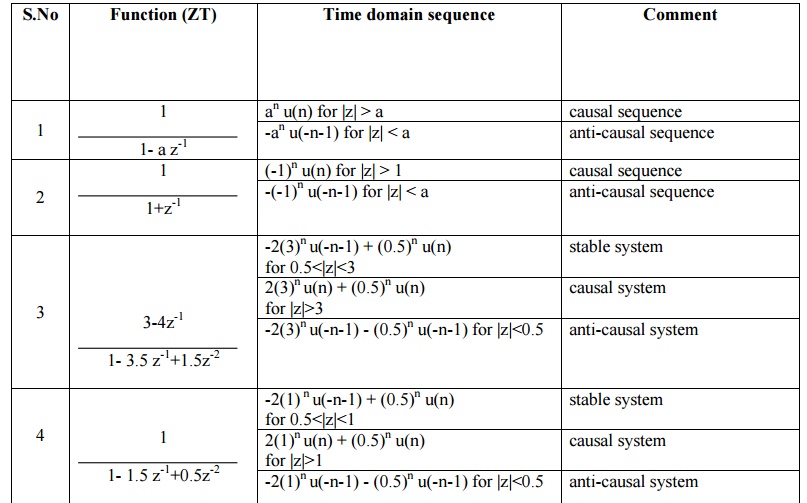

2.
RESIDUE THEOREM METHOD
In this
method, first find G(z)= zn-1 X(Z) and find the residue of G(z) at
various poles of X(z).
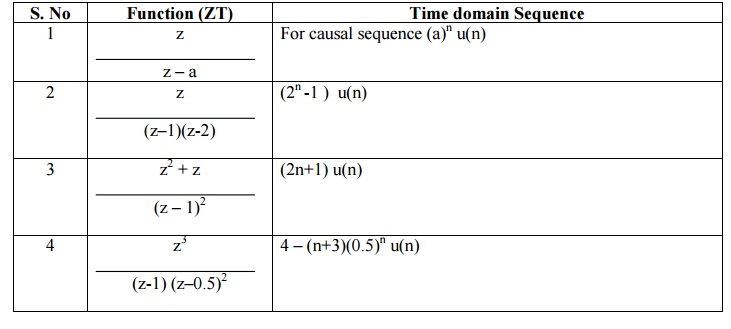
3. POWER-SERIES EXPANSION METHOD
The z
transform of a discrete time signal x(n) is given as

Expanding
the above terms we have
x(z) = …..+x(-2)Z2+ x(-1)Z+ x(0)+ x(1) Z-1 + x(2) Z2 +….. (2)
This is the expansion of z transform in power series form. Thus sequence x(n) is given as
x(n) ={ ….. ,x(-2),x(-1),x(0),x(1),x(2),…………..}.
Power
series can be obtained directly or by long division method.
SOLVE USING “POWER SERIES EXPANSION” METHOD
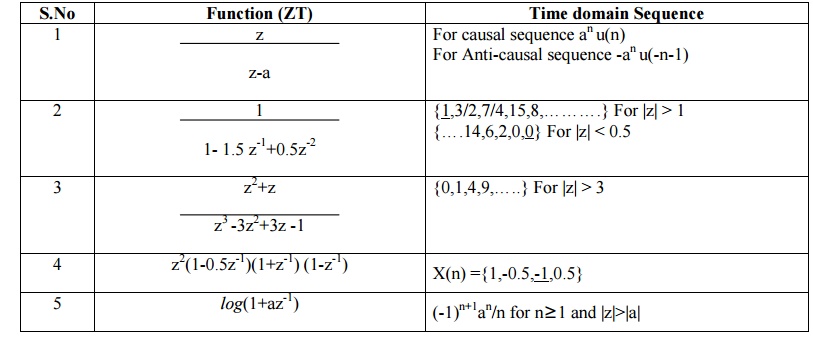
RECURSIVE ALGORITHM
The long
division method can be recast in recursive form.
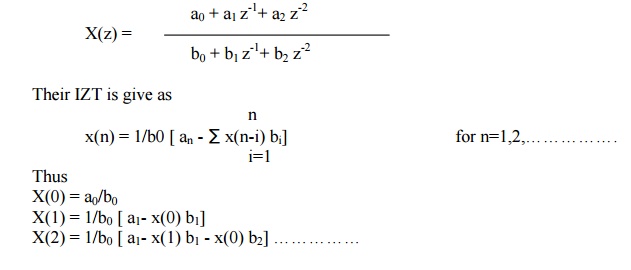
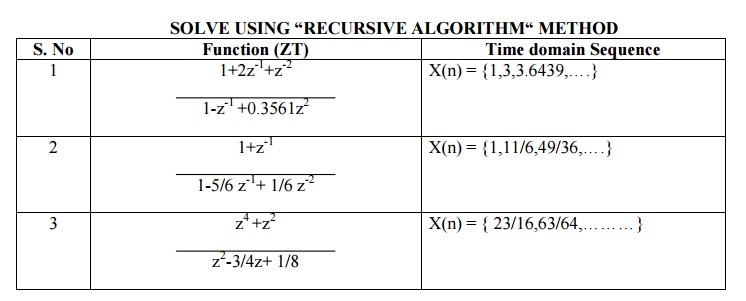
Related Topics